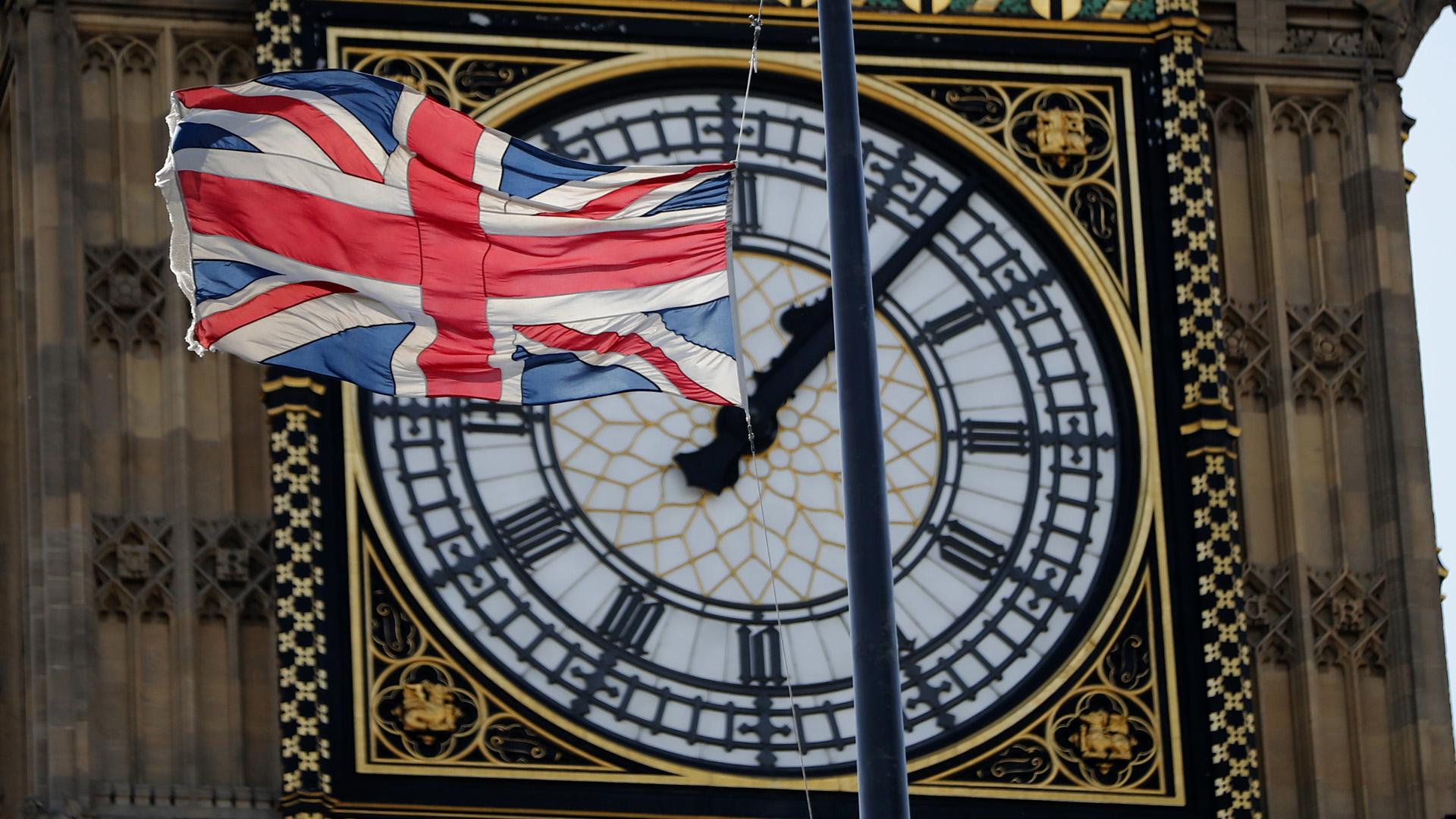'Extra time needed' for assembly and Scottish Parliament Brexit deal vote
- Published
- comments
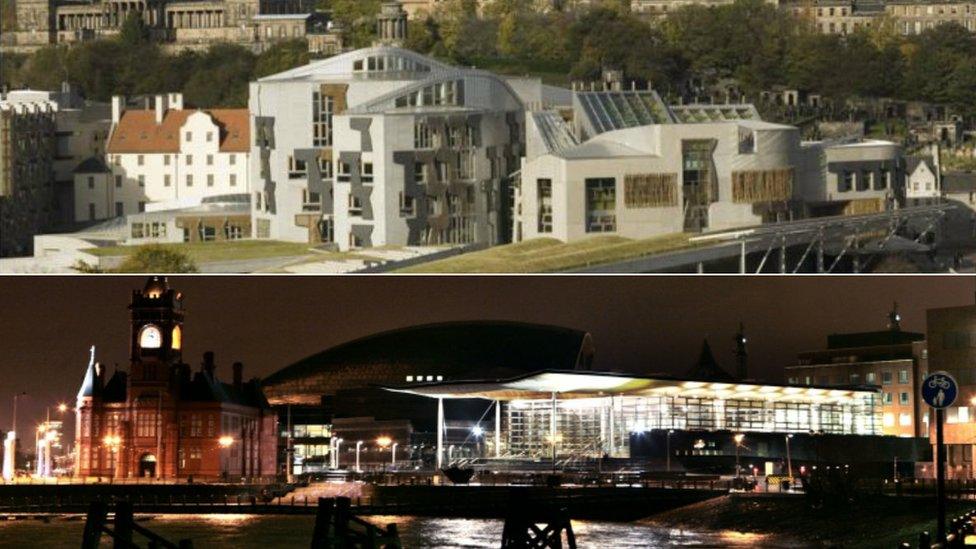
Both the Scottish Parliament and the Welsh Assembly will vote on the Withdrawal Agreement Bill
Brexit must be extended so the Welsh Assembly and Scottish Parliament can scrutinise Boris Johnson's withdrawal deal, the first ministers of Wales and Scotland have said.
Both places will need to vote on a law to implement the deal - Mark Drakeford and Nicola Sturgeon say 10 days is not enough to consider the legislation.
The PM has sent Brussels an unsigned letter asking for an extension.
But it was accompanied by a second saying an extension would be a mistake.
Mr Johnson was required by law to ask for the extension after MPs voted to delay agreeing his deal at the weekend until his legislation is passed by Parliament.
No.10 sought a further vote on the Brexit deal on Monday but the request was rejected by the House of Commons speaker John Bercow.
Mr Drakeford and Ms Sturgeon made their request in letters to EU council president Donald Tusk and Mr Johnson.
They say there is not enough time before the scheduled Brexit day of 31 October for AMs and MSPs to fulfil their "constitutional responsibilities".
Both also asked Mr Tusk for the extension, if granted by the remaining 27 EU states, to be long enough so a further referendum could be held.
Writing to the PM, the first ministers said: "We... wish to state in the clearest possible terms that we and our legislatures need time to analyse and consider the draft bill.
"We share the view which lay behind the amendment passed by a clear majority of the House of Commons that the time between now and 31 October provides insufficient opportunity to undertake this essential scrutiny".
They urged Mr Johnson to comply "fully and in good faith" with the Benn Act, which forced him to request the letter, so the UK Parliament, the assembly and the Scottish Parliament can carry out "their proper constitutional and democratic functions".
Earlier leader of the house Jacob Rees-Mogg announced government plans for the Withdrawal Agreement Bill to complete its passage through the Commons by Thursday.

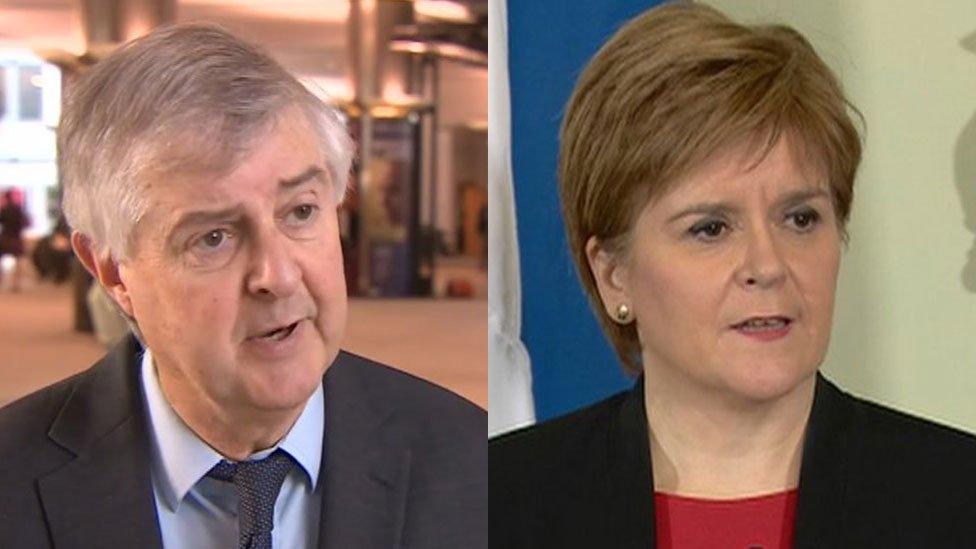
Mark Drakeford and Nicola Sturgeon made the requests in letters to Donald Tusk and Boris Johnson
Analysis by Felicity Evans, BBC Wales political editor
AMs and MSPs get to vote on Commons bills when Parliamentary laws impact parts of law that are devolved to Wales or Scotland.
It is called the Sewel Convention - but the assembly and the Scottish Parliament cannot block the Brexit deal if they vote against it.
That's because the UK government can override their refusal to give permission.
But If Boris Johnson did this, there would be political consequences to overriding the views of Wales and Scotland's national parliaments.
It is likely to fire up calls for independence in Scotland, and to a lesser extent in Wales - highlighting Mark Drakeford's argument that Brexit is putting the union of the four nations under strain.
But from Boris Johnson's perspective, such opposition would support his narrative that he's battling a Remain-inclined political class to deliver the referendum result.

Jonathan Edwards, of Plaid Cymru, said in the Commons that the withdrawal agreement makes no mention of needing to seek the consent of the assembly or Scottish Parliament over the future relationship with the European Union.
"Why is it therefore that Wallonia, a consistent part of the Belgian state, has more influence over the future [free trade agreement] with the EU, than Wales and Scotland," he asked.
Allow X content?
This article contains content provided by X. We ask for your permission before anything is loaded, as they may be using cookies and other technologies. You may want to read X’s cookie policy, external and privacy policy, external before accepting. To view this content choose ‘accept and continue’.

Brexit Secretary Stephen Barclay said it was a "fair point" that the UK government was "keen to address".
He acknowledged concerns about the "effectiveness" of the joint ministerial committee which brings the UK, Welsh and Scottish governments together for talks.
Cabinet office minister Michael Gove had spoken with the two governments "in the last day or so", Mr Barclay added.
Reacting to John Bercow's decision to disallow another Brexit vote in the Commons on Monday, Monmouth MP David Davies said some believe "the only consistency one can find in your rulings that they only seem to favour one side of the argument".
Mr Bercow said he tried to do "what is right by the House of Commons".
UKIP assembly member Gareth Bennett, who is supporting Mr Johnson's deal, accused Mr Drakeford of ignoring Wales' vote to leave the EU in 2016
"There is now a grave danger that, if Boris's deal doesn't go through, then we will not leave at all," he said.
- Published21 October 2019
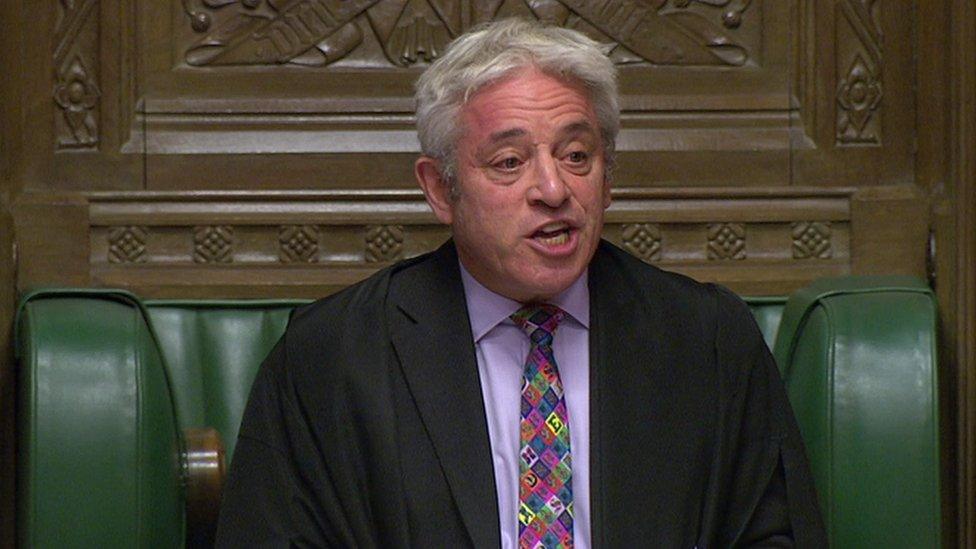
- Published21 October 2019
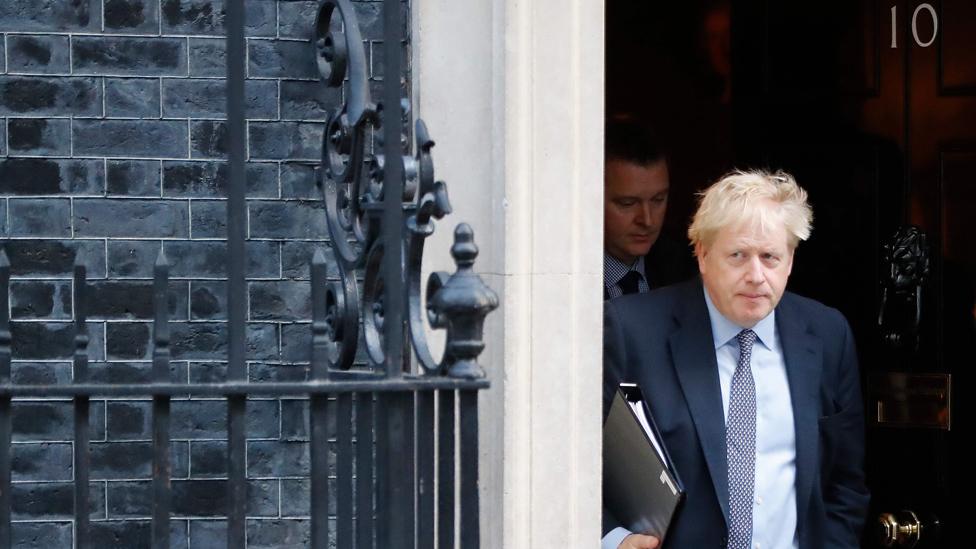
- Published21 October 2019
